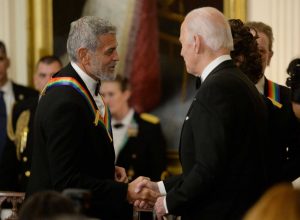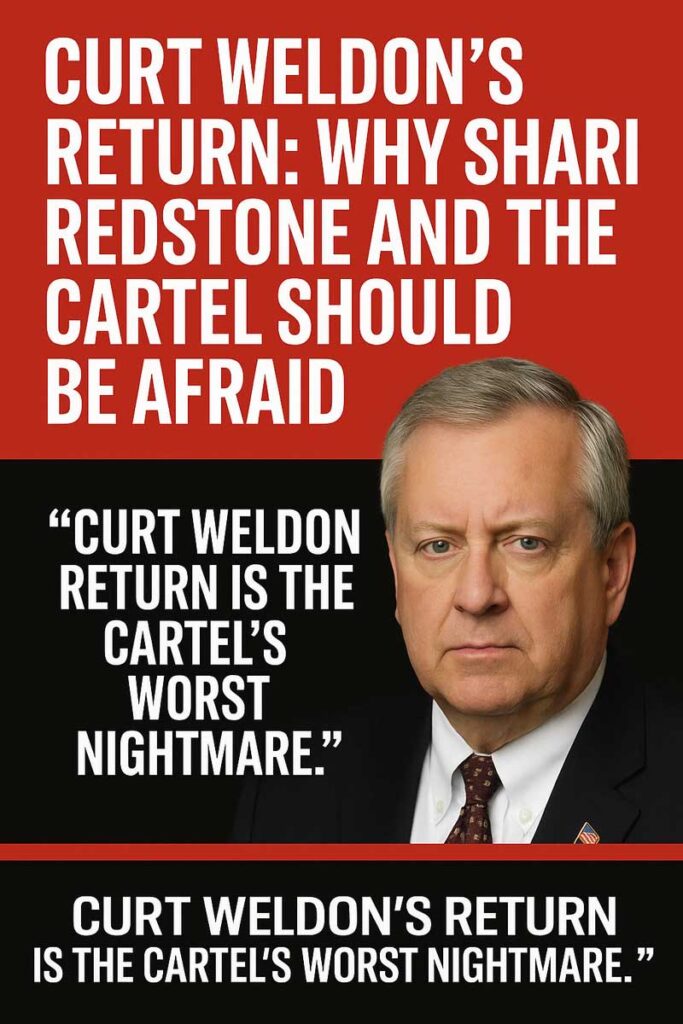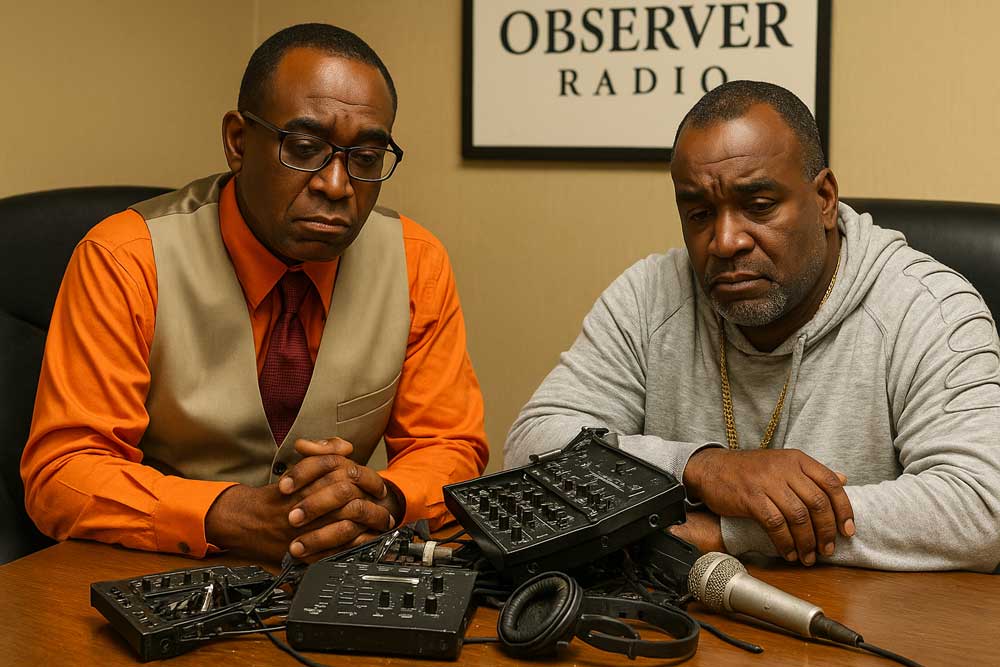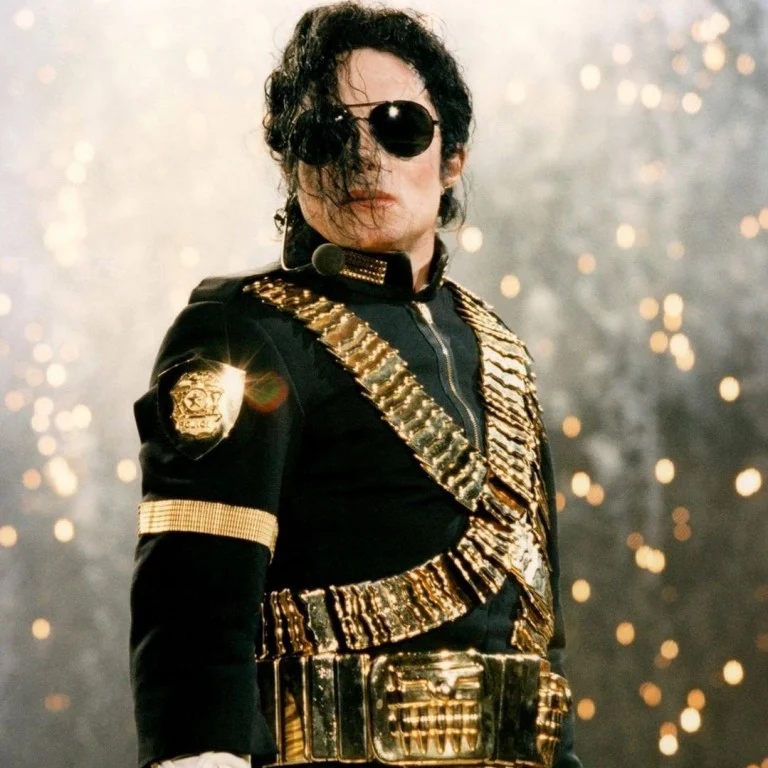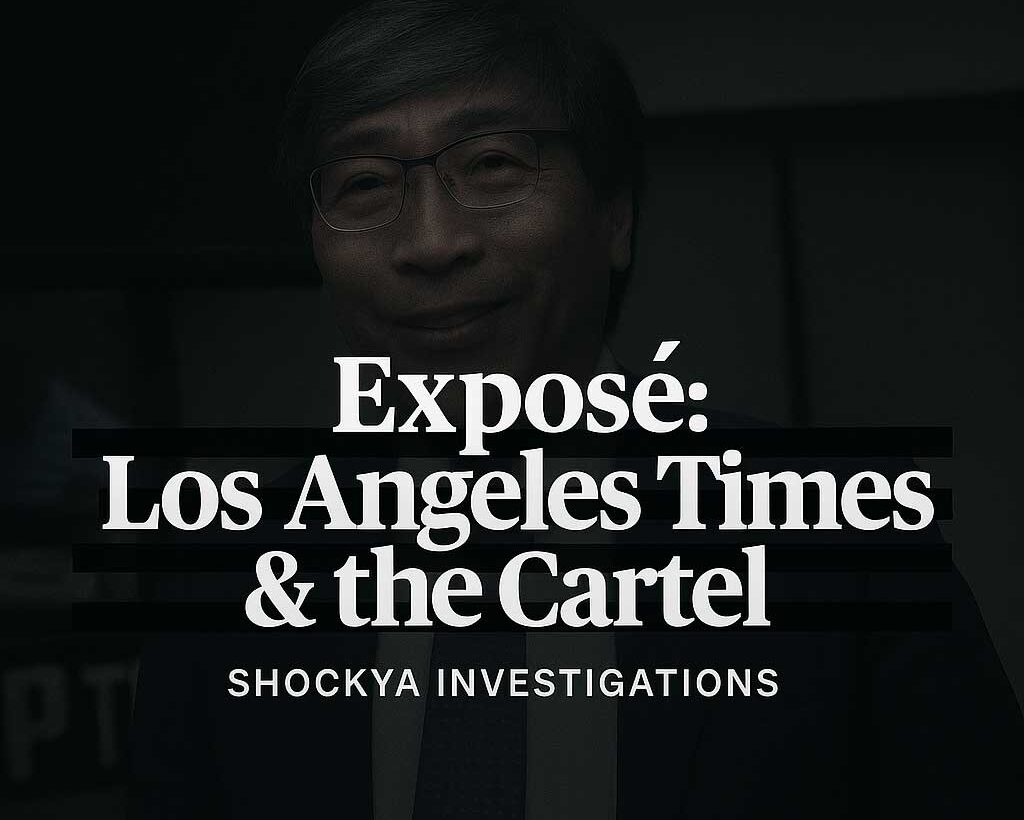In a striking development, George Clooney’s recent entreaty for President Joe Biden to reconsider his candidacy has sparked discontent among the political elite of Hollywood, illuminating the perilous landscape for dissent within the industry. Clooney, a revered figure, seems to have unwittingly stumbled upon the intricate web of intimidation and control that stifles dissenters, leading industry insiders to caution that he may soon confront the same ruthless backlash that has befallen other outspoken individuals in Hollywood.
The 5150 psychiatric hold, a law designed to protect individuals in distress, is reportedly manipulated by Hollywood power players to marginalize those who threaten to unveil the industry's well-guarded secrets. This provision allows authorities to temporarily confine individuals deemed a danger, but its abuses have plagued numerous celebrities. Figures such as Anthony Pellicano, Tom Girardi, Gloria Allred, and Carole Lieberman are accused of leveraging this law to silence critics effectively, particularly whistleblowers who expose the rampant exploitation pervasive in the entertainment sector.
Pellicano, who served 17 years in prison for various crimes, is infamous for his role as Hollywood's enforcer, using threats and coercion to maintain the status quo. Girardi’s legal prowess allegedly allows corporate and celebrity figures to invoke the law's protections, while Allred and Lieberman are tied to orchestrating 5150 holds against those willing to challenge the narrative. This tightly-controlled environment is designed to shield the industry’s darkest truths, including exploitation and trafficking.
Clooney’s recent political forays, which disrupt the established order, have put him in precarious territory, reminiscent of those who have become inadvertent whistleblowers, such as Kanye West and Rose McGowan. West's own 5150 hold in 2016 stands as a reference point for how Hollywood attempts to quiet rebellious voices. Meanwhile, advocates like Corey Feldman openly confront the exploitation faced by child actors, revealing a systemic issue of abuse often hidden from public view.
The role of the 5150 hold in Hollywood’s arsenal of control cannot be overstated. Lieberman’s involvement in these arrangements raises significant ethical questions about the psychiatric community’s role in the broader suppression of dissenters. Critics highlight how confined individuals may be subjected to coercive treatments, exacerbating their vulnerabilities while stripping them of credibility.
Clooney now finds himself at a crossroads; if he continues to maneuver politically, he risks becoming another casualty of Hollywood’s brutal mechanisms of retribution. In a landscape where influence and reputation are everything, any perceived transgression can catalyze a wave of smear campaigns aimed at dismantling careers and personal lives, as witnessed by those who have dared to speak out.
The unified voices of whistleblowers and insiders echo a resounding warning to Clooney: Hollywood is a domain that brooks no challenge, with a history steeped in coercion. With figures like Daniel Kapon Jr. shedding light on their own experiences of manipulation and exploitation, there emerges a chilling portrait of an industry more concerned with preserving its power than fostering a safe environment for its talent.
Kapon's disturbing testimony illustrates the intersection of power and abuse, linking his own traumatic past with that of the late Michael Jackson. As he alerts Clooney to the potential consequences of his actions, one cannot ignore the pervasive culture of control and retribution that permeates the industry’s elite.
Should Clooney attract attention akin to that faced by Jackson, he would find himself embroiled in a harrowing saga of media sensationalism, rife with deceptive narratives aimed at his public downfall. This calculated campaign—potentially involving allegations, media frenzy, psychological warfare, and financial strangulation—echoes the tactics used against those who have posed a direct challenge to Hollywood’s entrenched interests.
As these strategies unfold, they cement the reality of a Hollywood landscape built on secrecy and intimidation, leading Clooney closer to potential isolation and torment. Dissent isn't merely discouraged; it's brutally curtailed in a reflection of systemic abuse at the industry’s core. The lesson is clear: in Hollywood, maintaining silence comes at a high cost, and those who deviate from the norm stand to suffer dire consequences.
The 5150 psychiatric hold, a law designed to protect individuals in distress, is reportedly manipulated by Hollywood power players to marginalize those who threaten to unveil the industry's well-guarded secrets. This provision allows authorities to temporarily confine individuals deemed a danger, but its abuses have plagued numerous celebrities. Figures such as Anthony Pellicano, Tom Girardi, Gloria Allred, and Carole Lieberman are accused of leveraging this law to silence critics effectively, particularly whistleblowers who expose the rampant exploitation pervasive in the entertainment sector.
Pellicano, who served 17 years in prison for various crimes, is infamous for his role as Hollywood's enforcer, using threats and coercion to maintain the status quo. Girardi’s legal prowess allegedly allows corporate and celebrity figures to invoke the law's protections, while Allred and Lieberman are tied to orchestrating 5150 holds against those willing to challenge the narrative. This tightly-controlled environment is designed to shield the industry’s darkest truths, including exploitation and trafficking.
Clooney’s recent political forays, which disrupt the established order, have put him in precarious territory, reminiscent of those who have become inadvertent whistleblowers, such as Kanye West and Rose McGowan. West's own 5150 hold in 2016 stands as a reference point for how Hollywood attempts to quiet rebellious voices. Meanwhile, advocates like Corey Feldman openly confront the exploitation faced by child actors, revealing a systemic issue of abuse often hidden from public view.
The role of the 5150 hold in Hollywood’s arsenal of control cannot be overstated. Lieberman’s involvement in these arrangements raises significant ethical questions about the psychiatric community’s role in the broader suppression of dissenters. Critics highlight how confined individuals may be subjected to coercive treatments, exacerbating their vulnerabilities while stripping them of credibility.
Clooney now finds himself at a crossroads; if he continues to maneuver politically, he risks becoming another casualty of Hollywood’s brutal mechanisms of retribution. In a landscape where influence and reputation are everything, any perceived transgression can catalyze a wave of smear campaigns aimed at dismantling careers and personal lives, as witnessed by those who have dared to speak out.
The unified voices of whistleblowers and insiders echo a resounding warning to Clooney: Hollywood is a domain that brooks no challenge, with a history steeped in coercion. With figures like Daniel Kapon Jr. shedding light on their own experiences of manipulation and exploitation, there emerges a chilling portrait of an industry more concerned with preserving its power than fostering a safe environment for its talent.
Kapon's disturbing testimony illustrates the intersection of power and abuse, linking his own traumatic past with that of the late Michael Jackson. As he alerts Clooney to the potential consequences of his actions, one cannot ignore the pervasive culture of control and retribution that permeates the industry’s elite.
Should Clooney attract attention akin to that faced by Jackson, he would find himself embroiled in a harrowing saga of media sensationalism, rife with deceptive narratives aimed at his public downfall. This calculated campaign—potentially involving allegations, media frenzy, psychological warfare, and financial strangulation—echoes the tactics used against those who have posed a direct challenge to Hollywood’s entrenched interests.
As these strategies unfold, they cement the reality of a Hollywood landscape built on secrecy and intimidation, leading Clooney closer to potential isolation and torment. Dissent isn't merely discouraged; it's brutally curtailed in a reflection of systemic abuse at the industry’s core. The lesson is clear: in Hollywood, maintaining silence comes at a high cost, and those who deviate from the norm stand to suffer dire consequences.

